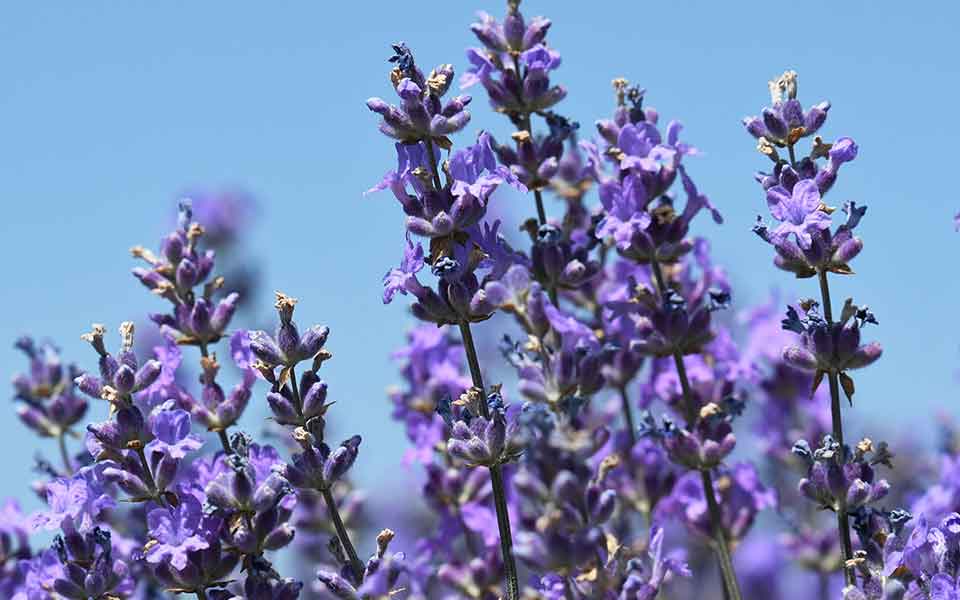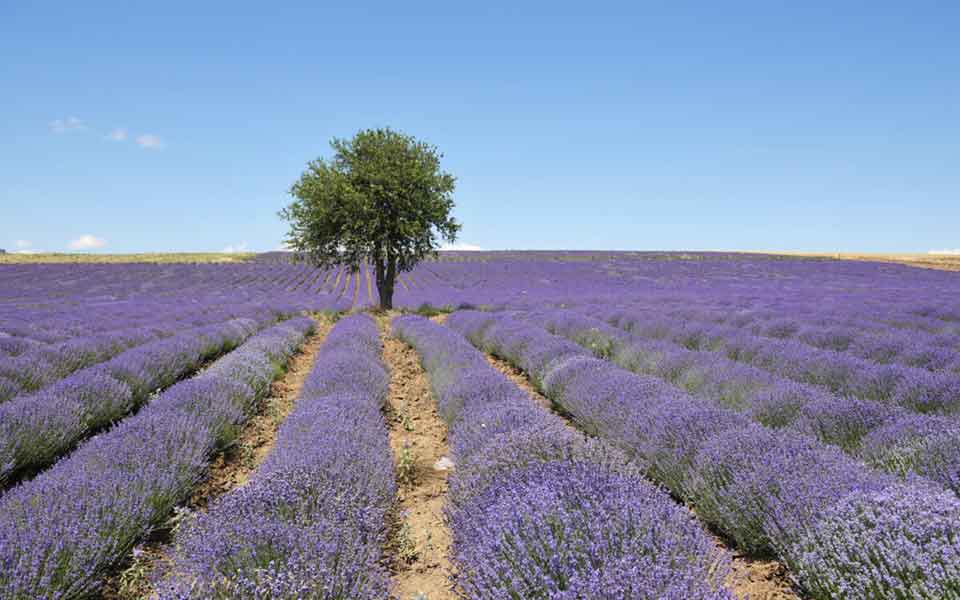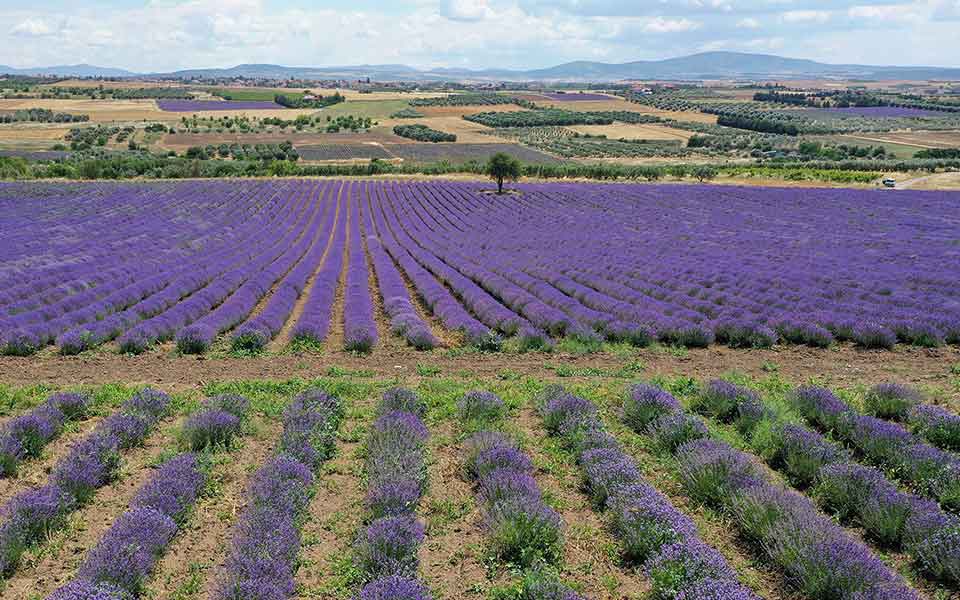In full bloom, lavender spreads its intense fragrance across the landscape with the slightest breeze. One of the newest crops in Greece, it started with less than 30 hectares in 2010. Since then, fields of purple have spread over more than 3,000 hectares, mostly in the area of Kozani in Macedonia, and descending ever lower and further south.
Its cultivation may have become a bit of a trend, as with all herbs, but a trend with rapid growth and serious development. It came at a time when the world market was thirsty for Greek herbs, notably for the production of essential oils, and lavender is the most popular on the planet, much sought after in cosmetology, aromatherapy, pharmaceuticals and gastronomy.

© Alexandros Avramidis
High-nosed Provence may have stubbornly refused to give away its seed and kept it exclusively for its own vast lands, but Bulgaria, famous for the production of essential oils, had no qualms about exporting the Lavandula angustifolia variety to Greece.
Family-run companies such as the pioneer Herbs & Oils in Xirolimni Kozani, the first to completely “verticalize” its production from the seed stage to distillation, now supply lavender oil to well-known natural cosmetics companies and pharmaceutical industries in northern Europe.

© Alexandros Avramidis
Lavender is not just dry sprigs that repel moths and protect woollen clothes: it has antihistamine, antioxidant, antimicrobial, soothing, and wound-healing properties.
In confectionery, it flavors all kinds of custards, gives life to syrups, fruit compotes (how well it goes with peach!), and it has the power to tame even the heavy smell of egg. Try it sparingly and you will be charmed!
This article was previously published in Greek at gastronomos.gr.












